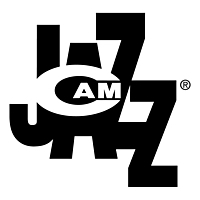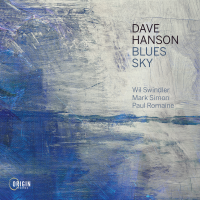Home » Jazz Articles » Album Review » Albert Ayler: More Lost Performances Revisited
Albert Ayler: More Lost Performances Revisited
All too often, "more" in an album title means "Beware: barrel scraping in progress." Not in this case. More Lost Performances Revisited is primetime Ayler. The disc draws from three sources over a five-year timespan. The earliest track, from 1962, is the surviving audio from a lost film made by Danish television featuring Ayler guesting with the Cecil Taylor trio with alto saxophonist Jimmy Lyons and drummer Sunny Murray. The 21:27 track is Taylor's "Four." This is early Ayler and he is at his most raw and primal. The film crew must have wondered what had hit them, and it sounds like even Taylor is slightly taken aback as he follows Ayler's solo with his own. This was 1962 remember. The world was still in b&w, sex had not been invented, and jazz was not meant to frighten the horses, on television anyway. But nobody had told Taylor, much less Ayler.
"Four" closes the album, which starts with three tracks recorded on June 30 / July 1 at the 1967 Newport jazz festival by the Ayler quintet with trumpeter Donald Ayler, violinist Michael Samson, bassist Bill Folwell and drummer Milford Graves. Ayler is, as five years before, raw and unfettered but his playing is now more nuanced and more shot through with gospel-inspired melodicism. The opening "Our Prayer" and closing "Truth Is Marching In / Omega" sandwich a choice curiosity, "Japan / Universal Indians." In November 1966, Pharoah Sanders had recorded "Japan" for his Impulse! debut, Tauhid (released in autumn 1967). The tune, so Japonais that it sounds almost parodic, is in fact an actual, traditional Japanese melody (though Sanders claimed composer credit on Tauhid). Had Ayler heard Sanders' still unreleased version before Newport? Was "Japan" a thing among avant-garde saxophonists at the time? Is there such a thing as a coincidence? Do you believe in magic?
The quintet tracks are followed by an Ayler quartet's performance at John Coltrane's funeral in New York City, which was held three weeks after Newport (see the YouTube below). One of Coltrane's final wishes was for Ayler and Ornette Coleman to play on the day. Alice Coltrane arranged for Ayler's group to play near the beginning of the service and Coleman's at the end. Ayler is joined by brother Donald, bassist Richard Davis and Milford Graves. "Love Cry / Truth Is Marching In / Our Prayer" expresses mourning, devotion and celebration, all at the same time. It is beyond beautiful. Live, the performance must have been overwhelming. As a recording, Ayler's performance acquires new potency thanks to ezz-thetics' engineering jedi Michael Brändli's sound restoration and remastering. At 6:24 the track is the second shortest on the album, but it might be considered the most monumental.
Track Listing
Our Prayer; Japan (Traditional) Universal Indians; Truth Is Marching In / Omega; Love Cry / Truth Is Marching In / Our Prayer; Four.
Personnel
Albert Ayler
saxophone, tenorMichael Samson
violinBill Folwell
bass, acousticMilford Graves
drumsDonald Ayler
trumpetRichard Davis
bass, acousticCecil Taylor
pianoJimmy Lyons
saxophone, altoSunny Murray
drumsAdditional Instrumentation
Albert Ayler: tenor saxophone, alto saxophone (1), soprano saxophone (1), vocal (2); Michael Samson: violin (1-3); Bill Folwell: double bass (1-3); Milford Graves: drums (1-4); Don Ayler: trumpet (4); Richard Davis: double bass (4); Cecil Taylor: piano (5); Jimmy Lyons: alto saxophone (5); Sunny Murray: drums (5).
Album information
Title: More Lost Performances Revisited | Year Released: 2023 | Record Label: Ezz-thetics
Tags
Comments
PREVIOUS / NEXT
Support All About Jazz
 All About Jazz has been a pillar of jazz since 1995, championing it as an art form and, more importantly, supporting the musicians who make it. Our enduring commitment has made "AAJ" one of the most culturally important websites of its kind, read by hundreds of thousands of fans, musicians and industry figures every month.
All About Jazz has been a pillar of jazz since 1995, championing it as an art form and, more importantly, supporting the musicians who make it. Our enduring commitment has made "AAJ" one of the most culturally important websites of its kind, read by hundreds of thousands of fans, musicians and industry figures every month.





























